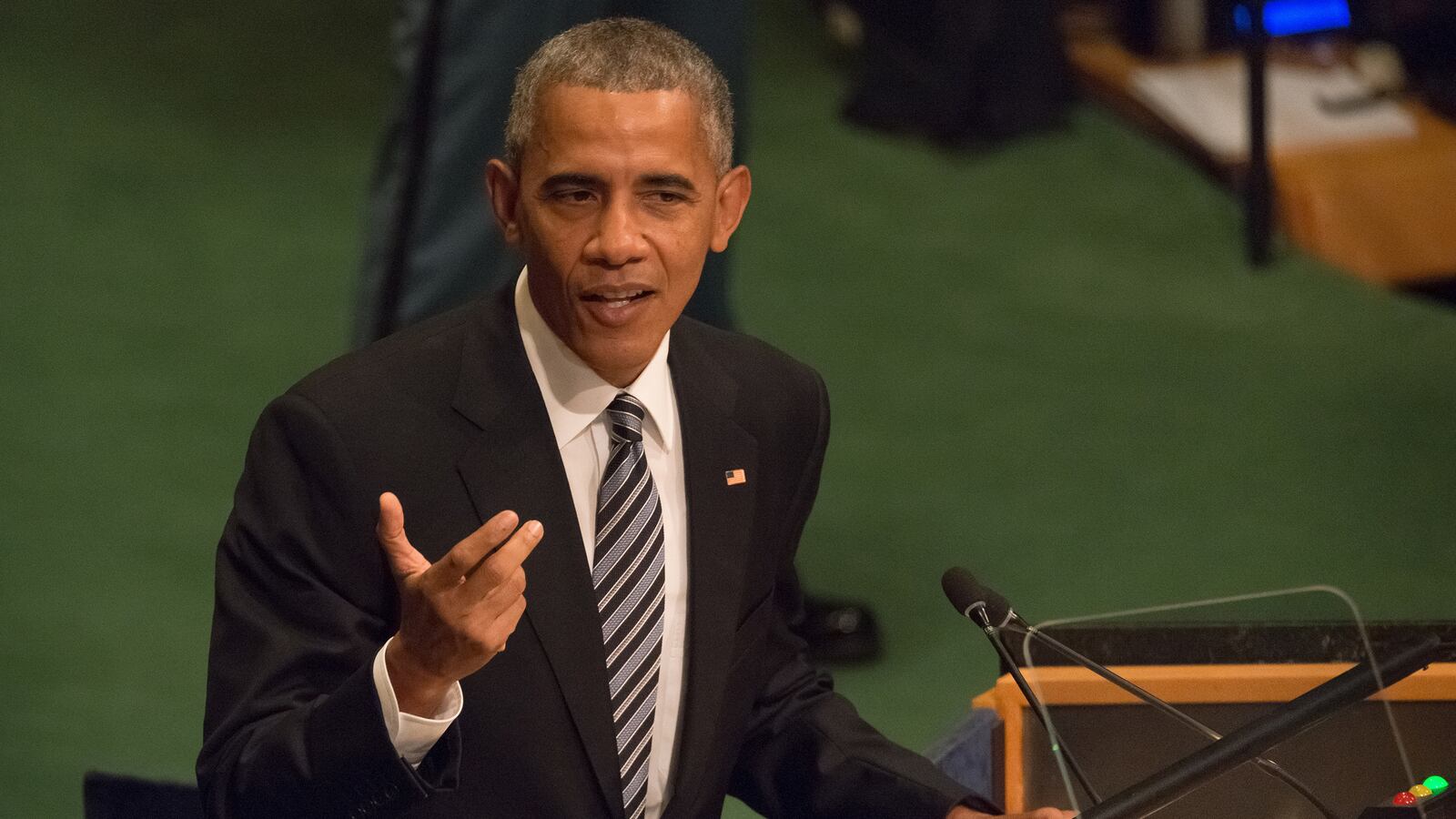In his final address before the United Nations General Assembly, President Obama on Tuesday afternoon delivered an elegy for his eight years in office. Visibly older and grayer as he stood before the world’s leaders, he began with a victory lap for crediting himself with returning the global economy to growth, resolving the Iranian nuclear issue through diplomacy, and working with other nations to address pressing problems and strengthen international institutions.
He didn’t use the phrase popularized by the Clinton campaign, “Stronger Together,” but that was the theme he struck with just 50 days before Americans go to the polls to elect his successor. With voters unnerved by a string of terrorist bombs placed over the weekend throughout the New York and New Jersey region, and the arrest of a suspect, a naturalized citizen born in Afghanistan, whatever Obama said would have resonance on the campaign trail.
Perhaps not surprisingly, he struck an above-the-battle, intellectual approach designed more for the leaders in the hall than for partisans looking for sound bites. He acknowledged “deep fault lines in the existing international order” where “basic security, basic order has broken down” in the Middle East with “terrorist networks using social media to prey upon the minds of our youth, endangering open societies and spurring anger against innocent immigrants and Muslims.”
Reading Obama’s lengthy speech after the fact, I felt his pain in wanting to take credit for the progress he believes he has made as leader of the free world instead of responding to the discouraging news that dominates the headlines. A special summit on refugees was taking place on the periphery of the U.N. general assembly as leaders grappled with 65 million refugees displaced by war and poverty as the Syrian civil war entered its sixth year.
“This is the paradox that defines our world today,” Obama said, as he called for a “course correction.” Like Hillary Clinton vying to succeed him, Obama did not propose or embody bold change in New York Tuesday and that probably suited his audience. On the campaign trail, voters disgusted by politics as usual seem to be searching for more.
Obama noted that those living in extreme poverty around the world has dropped from 40 percent to under 10 percent, a statistic he shared “not to whitewash the challenges we face, or to suggest complacency,” but to urge leaders and followers to continue the journey forward.
He sketched out the threats governments face including “aggressive nationalism” and “a crude populism,” which wears many faces across Europe and here at home in Donald Trump’s campaign. Obama’s words were lofty, made more for a high-minded journal on democracy than the rough-and-tumble of election-year politics. He assured his audience that we don’t need to descend into “soulless capitalism that benefits only the few.”
He urged greater recognition for the plight of those who have been left behind and ignored, fueling “alternative visions” spurred sometimes, he said, “from the far left, but more often from the far right—which seeks to restore what they believe was a better, simpler age free of outside contamination.”
Obama elegantly stated his world view, one where international engagement and cooperation is essential and “a nation ringed by walls would only imprison itself.” He is always aware of history and its judgment of him, and nowhere is this more evident than on climate change. The Paris Agreement that he helped bring about is center stage this week in New York as the nations of the world seek to implement it.
It will also be center stage at the debate next Monday between Clinton and Trump, and on the campaign trail where Obama pledges to spend two days a week until the election driving home the same points he made before the U.N., that reasoned political discourse is the way to make progress, and that Clinton’s the one to build on his legacy. Without mentioning her name, or that of her opponent, Obama set the stage for her and for his own legacy that he hopes she can protect.






